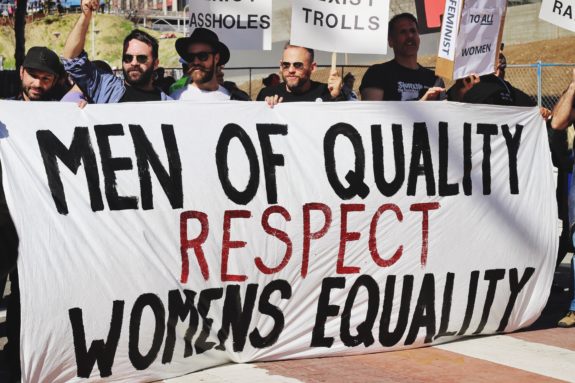French language gender rules & feminism: the paradox

In 1986, former French Prime Minister Laurent Fabius issued a notice for the feminisation of official names, functions and titles. Thirty years on, France still finds itself divided by linguistic conflict; tout n’est pas gagné pour autant.
Académie française: French language guardian
While morphological restrictions prevent a homogeneous feminine suffix, everyday usage accepts variations such as avocate, factrice, postière, and pharmacienne. Conversely, the Academie française is quick to reject anything opposing traditional, derivational norms.
In 2014, French politician Julien Aubert was fined a quarter of his monthly parliamentary allowance after bluntly refusing to address Sandrine Mazetier as Madame la présidente, claiming adherence to the Académie française.
Following the event, the Académie française issued an updated memo arguing the need for une valeur générique in its quest for French language gender neutralisation. They advocated the masculine form as unmarked and generic, aiming to disassociate a person’s gender from the position they occupy.
After having spent so many years fighting for recognition in the workplace, French women deserve more than to lose out to this so-called impartiality.
Feminist debate: French language gender equality
French, unlike German, does not have a specifically designated neutral pronoun. So, to assign ‘le’ neutrality is to blindly adopt the masculine form as default.
Grammatically speaking, I see no inherent problem in this; the masculine form carries no marked inflectional morphemes. And yet, on a wider social level, what does this say about gender equality?
The freedom of women in France is intimately linked with language.
The way I see it, language presents a barrier to female emancipation. Gender norms are firmly anchored in linguistic tradition; le masculin l’emporte sur le féminin. In modern day France, the desire for neutrality serves to uphold prejudice. In other words, gender-inclusivity denies the feminine form the satisfaction of being distinct and unambiguous.
If France’s leading linguistic body prides itself on its conservatism, French people are decidedly more liberal when it comes to le bon usage. In my eyes, linguistic prescriptivism is nothing more than a top-down initiative. Consider the quotation :
Et de l’usage, seule l’Académie française a été instituée «la gardienne»
Yes, the Académie française is solely responsible for maintaining the rules of linguistic usage in France.
However, usage is, above all else, a natural construct of linguistic evolution stemming from social demand. Is it not?
Feminisation in context: French language lagging
Interestingly, French public opinion has tried to liberate the feminisation of professional titles.
The Académie française concludes that within the French language, gender-marked nouns may be employed at the express wish of the individual concerned – provided this pertains only to everyday usage. Perhaps this is the first step toward equality, or maybe it’s nothing but a superficial gesture. After all, adherence to the linguistic norm still heavily controls France’s political scene.
On the world stage, France is well and truly playing catch up.
In 1993, Belgium adopted a decree for the feminisation of professions. In 1979, ‘la Gazette officielle du Québec’ called for the use of feminine forms in administration. Terms such as ‘soldate américaine’ and ‘vice-rectrice’ have become commonplace in the québécois lexicon. In an age of changing mentalities and social liberation, I think it’s about time France stepped up.
So, there you have it: the eternal paradox. Tradition versus modernity.
In France, grassroots liberalism – la langue du peuple – stands little chance against the institutional prowess of the Académie française.
Are French gender rules too conservative for professional titles? We would love to read your thoughts in the comments box below.
Image credits
- Académie Française by btwashburn via flickr
- Problem by Adi Goldstein via Unsplash
- Gender by Denisen Family via pixabay
- Gender Equality by Samatha Sophia via Unsplash
- French language by Cathyrn Lavery via Unsplash











Interesting article Beth!
Thanks Sophia, I’m glad you enjoyed it!
Bonjour Beth,
I really enjoyed your article on the French language and gender feminism. I’ve lived in France for almost twenty years and still wrestle with the gender of French nouns—a matter I mentioned recently in my MFL article on public toilets in France, https://www.myfrenchlife.org/2017/08/29/toilet-paper-france/
I grew up in South Africa where we also had a language watchdog—the mirror image of the Académie française. One of their tasks was to invent an Afrikaans word for any new English word that threatened the purity of their language. Most MFL readers won’t remember this, but car tyres once had inner tubes for inflation. These were eventually replaced by the more high-tech tubeless tyre we know today. When they first came out, Die Suid-Afrikaanse Akademie vir Wetenskap en Kuns decreed that this newfangled technology for motorcars should be called a “binnebandlose buiteband”—which translates literally as “inside tyreless outside tyre”. Needless to say the word was never used—I suppose because “tubeless” is so much easier to get your head around. But quite a good example of a convoluted beurocratic solution to a staightforward issue where the simpler word simply won the day.
Amicalement
Ray
Hi Ray, thanks so much for your comment – you raise some really great points! It’s interesting to note how these linguistic bodies are so quick to repel any such word that may threaten their idea of linguistic purity. I’m sure you’re aware, but the Académie française has also published a list of French alternatives for commonly used anglicisms, designed to condemn the invasion of English borrowings and adaptations. Most notably, however, public usage continues to uphold the use of anglicisms in popular speech – perhaps, then, the Académie française should focus less on traditional values and more on the demands of modern-day linguistic evolution.